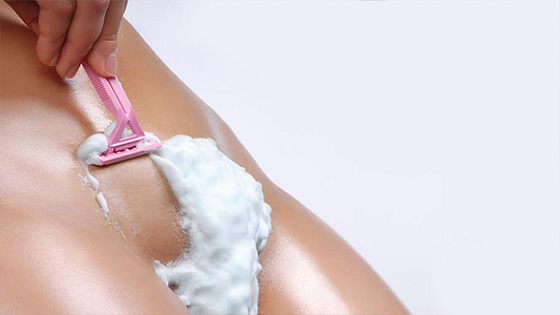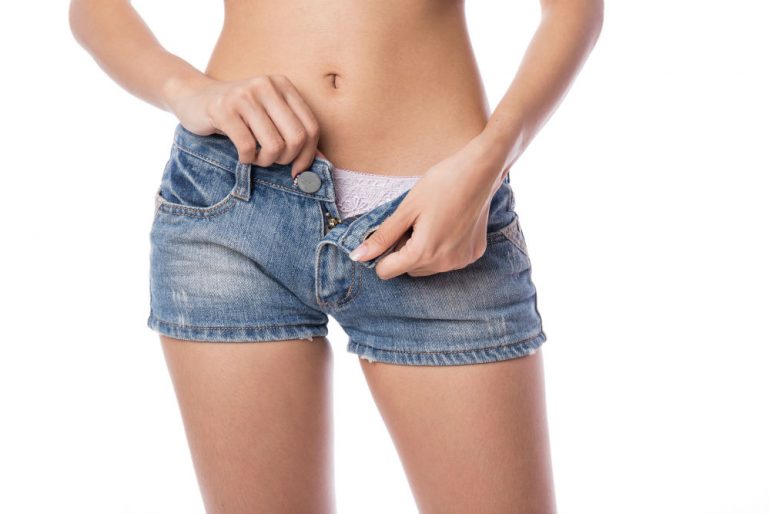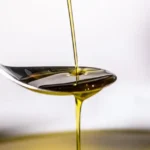Pubic Hair and Healthy Vagina
You probably know the benefits of removing pubic hair (if you don’t know you certainly won’t do it), but did you know that there are many downsides too?

Do you know why you have pubic hair?
The most well-known theories about this are those that say that during the evolution of man, pubic hair showed that the individual is mature enough to reproduce.
They also served to protect the genitals from rubbing during sexual intercourse.
But these factors do not seem to be strong enough stopping people to remove or trim pubic hair, whether they wax, shave or remove it with a cream.
A month-long study found that 96% of girls and 87% of men in the United States remove their pubic hair, and there is no doubt that these figures apply to the rest of the world.
Here are the three worst reasons that will make you stop pubic hair removal:
Burning, itching and appearance of internal fibers
The above study showed that 75% of people who shave their pubic hair have itching and allergies, and 40% of them have burning and pimples.
Also, to a large number of respondents is noticed the appearance of internal fibers that, although even if they seem harmless, can cause serious problems.
Can help in the transmission of infectious diseases
Of course, pubic hair removal also prevents the growth of pubic lice, but pubic hair removal can sometimes cause bleeding wounds that, when infected, can easily transmit infectious diseases such as gonorrhea, HIV, infections, and the like.
Injury to the genitals
It seems that by removing pubic hair, we are actually stripping our genitals, making them much more vulnerable than they really are.
Thus, a number of injuries during sexual intercourse are caused by the removal of pubic hair.
So is it worth removing them or not?
Decide for yourself.

Some Unusual Things about Pubic Hair You Did Not Know
Below we discover some interesting facts about pubic hair!
- Pubic hair is reasonably located on and around the genitals. They protect our genitals, and especially the sensitive tissue of the vagina.
- In addition to providing protection, pubic hair also acts against friction!
- Removing them can cause injury. We can remove pubic hair with various types of wax, a razor, and more recently with a laser. While waxing or shaving pubic hairs can grow into the skin and cause pimples or abscesses. Burns may also occur due to waxing.
- In the 19th century, women removed pubic hair but put wigs on the pubic area. So they protected themselves against lice and various infections.
- Oral sex practitioners by a large percentage remove pubic hair. According to a study published in the Journal of Sexual Medicine, people who have practiced oral sex for the past month probably don’t have a hair down.
- If you have decided on pubic hair removal, do it after menstruation. Women are most sensitive to pain just before and during menstruation.
- People used to collect pubic hair as a souvenir! In Britain, during the 18th and 19th centuries, the pubic hair of lovers served as a mark of honor. Some even put them on a hat as a decoration!

3 Rules for a Healthy Vagina
All women need to take care of their vaginal health.
A healthy vagina is naturally acidic and is rich in beneficial bacteria that help protect against infections and maintain a normal pH level.
A healthy vagina secretes juices that are self-cleaning.
Any imbalance can cause vaginal irritation and infection.
Protect vaginal balance without flushing with water
Flushing can disturb the pH of the vagina and reduce its acidity, which opens the door to bacterial infections.
The balanced acidity of the vagina ranges from 3.8 to 4.5 pH.
If the vagina has a strong or unpleasant odor, see a doctor.
Rinsing will only mask the odor and will not eliminate the cause.
Avoid using strong soaps or hygiene products as they may disturb the pH.
A healthy diet for vaginal health
A healthy and balanced diet is the key to vaginal and reproductive health.
Certain foods can be effective in treating vaginal health problems.
Cranberry juice and yogurt can prevent fungal infections and help treat them.
If you have problems with your vagina’s dryness, seek the advice of a doctor who will advise you on which foods can lubricate your vagina naturally.
Safe sex protects against bacteria and other diseases
The use of condoms during sex protects against sexually transmitted diseases such as HIV, genital herpes, syphilis, gonorrhea, genital warts and chlamydia.
There is no cure for some of these diseases, such as HIV and genital herpes.
Human papillomavirus causes genital warts and can also cause cancer and other diseases.




